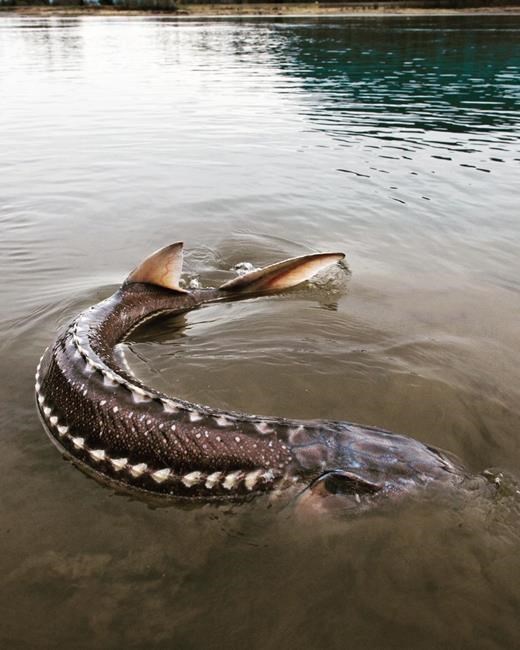VANCOUVER — Fisheries scientists in British Columbia have recovered the bodies, but have few other clues and no prime suspect.
So what is killing the giant sturgeon of the Nechako River?
Government scientists are asking for the public’s help to solve that mystery after 11 of the iconic and endangered fish were recently found dead in the Nechako in central B.C.
The fish were all adults of a species that can grow to six metres in length and live for more than 100 years.
Their bodies showed no visible external injuries and provincial scientists did not believe the deaths were caused by disease, chemical exposure, angling or gillnet fisheries, the Ministry of Land, Water and Resource Stewardship said.
The dead fish had all been found since last week, the ministry said.
Nikolaus Gantner, the ministry's senior fisheries biologist for the Omineca region, said it was the first time such a level of mortality had occurred in such a short time frame.
“We haven’t seen something like this in the documented history …. So, these mortalities are obviously concerning, specifically in the Nechako, where this has not happened before to that extent,” said Gantner.
Scientists are trying to maximize what they can learn from each death, but considering some fish were “fairly decomposed,” the investigation was challenging, said Gantner.
“I am told from veterinarians and other experts that even a few hours can make a difference whether we can learn something from that fish or not.”
That’s why help from the public matters, he said.
Anyone who finds a dead white sturgeon in the Nechako or Fraser rivers is asked to report details by phone at 250-649-2876 or email Gantner along with photos of the fish.
“And the sooner we can get to them, the more we can learn from our mortality,” said Gantner.
White sturgeon in the Upper Fraser and Nechako rivers are listed as endangered under the Species at Risk Act.
As the largest freshwater fish species in Canada, white sturgeon are a "dinosaur" fish, said Sarah Schreier, executive director of the Fraser River Sturgeon Conservation Society.
“Because they have been in our river for so many years and generations, they also have a very important spiritual and cultural connection to all our communities and our First Nations communities,” she said.
Sturgeon are also regarded as an apex species, sitting at the top of the food chain in their aquatic ecosystem, said Schreier.
“They are like the canary in the coal mine. They are a real barometer of the health of this ecosystem. So, when we see them struggling, it tells us that we need to be also looking at the overall health of the ecosystem and watershed,” said Schreier.
Schreier said habitat loss had likely affected the sturgeon food supply, with lower runs of salmon making it harder for sturgeons to reproduce.
Although Schreier was saddened by the deaths of the sturgeon in the Nechako, she hoped the incident means more people would learn about the endangered species and how to help them.
Gantner's email to report any discoveries is [email protected]
This report by The Canadian Press was first published Sept. 11, 2022.
This story was produced with the financial assistance of the Meta and Canadian Press News Fellowship.
Nono Shen, The Canadian Press



.png;w=120;h=112;mode=crop)